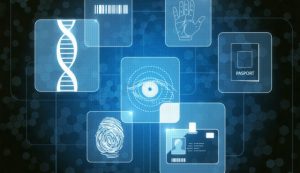 Biometric science and technology continue to advance at an exponential rate. Thanks to this technology, law enforcement is finding new ways to put it to work cutting down on crime. In some instances, it could make it possible for law enforcement officers to solve cold cases. Despite these apparent advantages, many still feel as though the use of this technology could be a violation of a person’s civil rights and may be a violation of the constitution.
Biometric science and technology continue to advance at an exponential rate. Thanks to this technology, law enforcement is finding new ways to put it to work cutting down on crime. In some instances, it could make it possible for law enforcement officers to solve cold cases. Despite these apparent advantages, many still feel as though the use of this technology could be a violation of a person’s civil rights and may be a violation of the constitution.
Finger Print Readers Are Only the Beginning
Among the most significant advances in the field of biometrics are facial recognition and fingerprint scanners. These technologies are used to secure a wide range of secured devices such as cell phones, tablets, even computers. Upon arrest, officers like to be able to search any electronic devices the alleged perpetrator might have. However, there is some concern that the use of this technology could be considered a violation of the individual’s 4th and 5th Amendment rights.
This issue has been before the courts, in 2016 a federal judge ruled that officers could compel a suspect to use their fingerprint to unlock their iPhone. But, one year later, another federal judge reversed this decision. Stating that he did not believe the situation warranted a suspect being forced to unlock their devices via biometrics so that officers could search them for evidence.
Moving on up to the latest in digital CCTV cameras and facial recognition software, the images, and video captured today can go way beyond just recognizing a person’s face. They can help with walking gait and voice recognition and create a picture accurate enough for “iris only” recognition.
In the Media
While many believe that since this type of technology is already in place adding to the toolbox of law enforcement officers is merely an extension of something we are all used to using. Many believe that making it available to law enforcement officers will make their cities safer.
The ACLU along with other critics, feel that the use of facial recognition software will make it possible for LE to track innocent people anywhere they go. At the same time, it would be possible for LE to follow a “person of interest” without having to obtain a warrant. At the same time, LE could monitor a person’s purchases (i.e., guns, ammunition, even fertilizer) and enter this information into a database which would then cause them to be added to the “person of interest” list.
Being on this list could then lead to a completely innocent person being tracked in the event of a crime being committed, even if the person in question had absolutely nothing to do with the crime in question. Critics believe that actions such as these could constitute a violation of that person’s 4th and 5th Amendment rights.
Finally, everyone seems to agree that the use of biometric devices can be of great help in helping law enforcement to deal with things like domestic terrorism. The final answer will be one that manages to achieve an acceptable balance between a person’s right their privacy and individual freedoms and the ability of biometrics to help make things a little safer for everyone.
